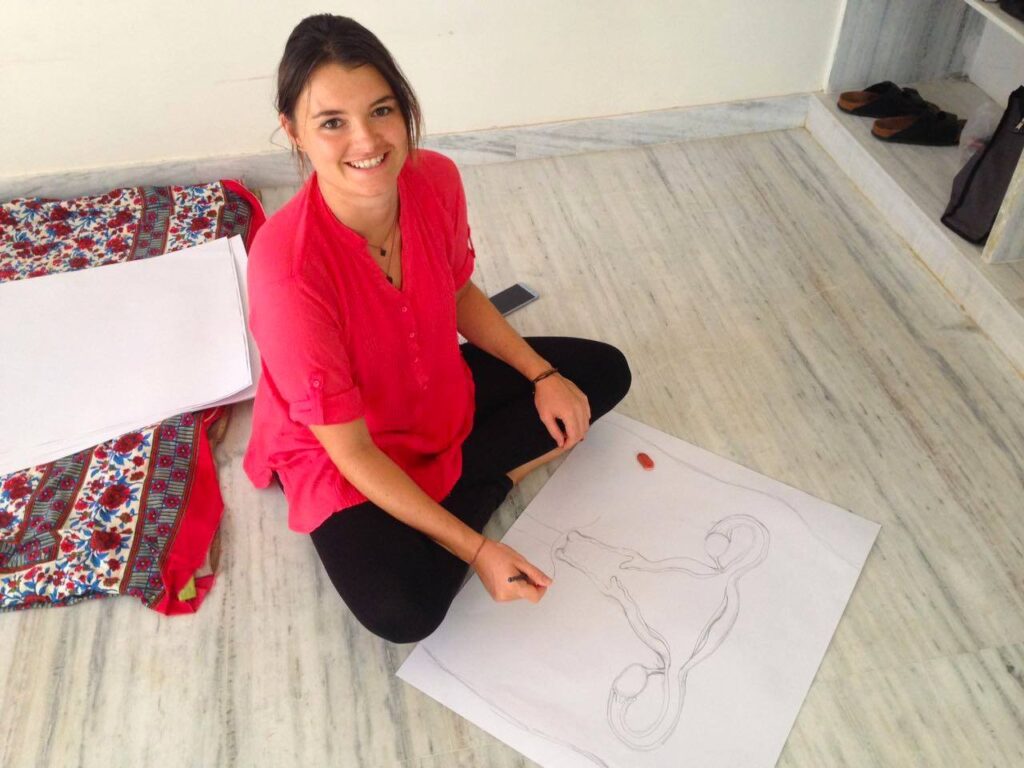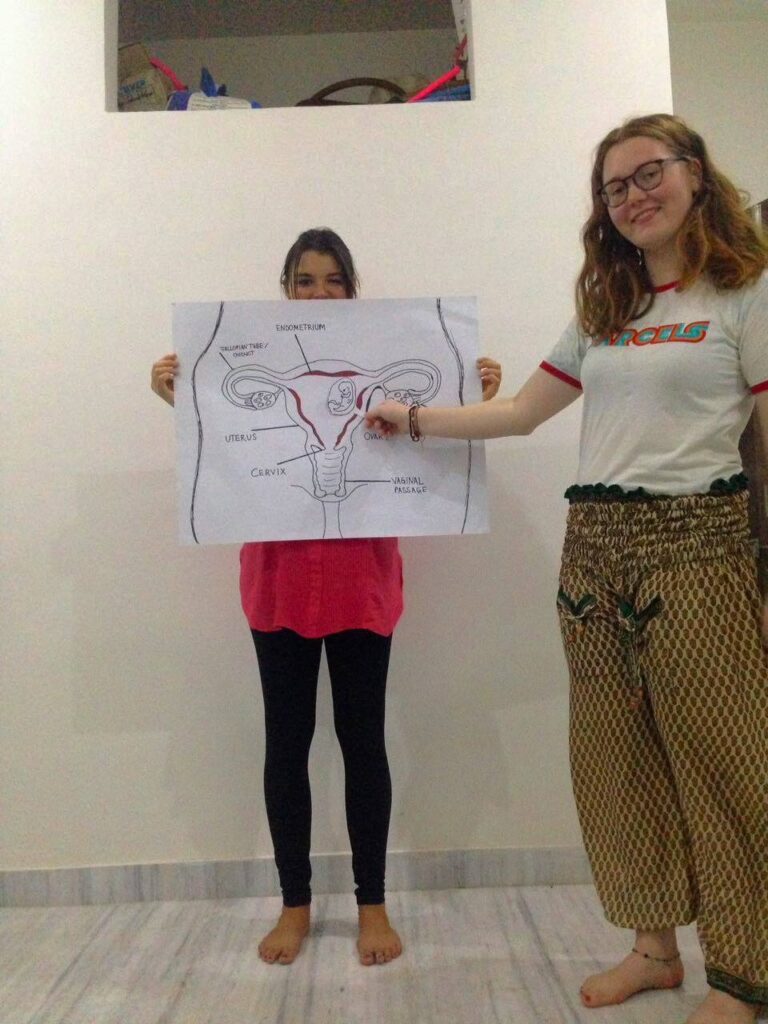

Our Story #4
Breaking Taboos: Empowering Girls through Menstrual Hygiene in Pali
In the bustling town of Pali, nestled amidst the vibrant streets and bustling markets, two young German researchers embarked on a mission that would challenge age-old taboos and empower girls across the community.
Their internship in India brought them face to face with the harsh reality of menstrual hygiene practices. Despite some knowledge about menstruation, the researchers discovered a glaring gap in education – it was often taught too late, leaving girls unprepared for this natural transition. They found that while menstruation was typically discussed in the 9th standard, girls often experienced it as early as the 6th or 7th standard.
Determined to bridge this educational divide, the researchers set out on a journey to raise awareness about menstrual hygiene and disposal practices. Armed with research and a fervent desire for change, they visited schools across Pali to conduct workshops and sessions on menstrual health.
Their approach was holistic, covering not only the biological aspects of menstruation but also addressing the social and cultural stigmas surrounding it. They provided girls with essential information on menstrual hygiene, including how to use pads correctly and the importance of proper disposal methods.
As the researchers engaged with the students, they encountered skepticism and resistance from some quarters. Deep-rooted taboos and misconceptions about menstruation made their task challenging. However, they persisted, armed with patience, empathy, and a commitment to breaking down barriers.
Their efforts bore fruit as they witnessed a gradual shift in attitudes and behaviors. Girls began to speak openly about menstruation, breaking free from the shackles of shame and secrecy. With newfound knowledge and confidence, they embraced menstrual hygiene practices with enthusiasm.
But the researchers didn’t stop there. Recognizing the need for sustainable solutions, they advocated for proper disposal mechanisms, emphasizing the environmental impact of improper waste management. They collaborated with local authorities to implement initiatives for safe and eco-friendly disposal of menstrual waste.
Their work didn’t go unnoticed.
The community rallied behind the researchers, recognizing the importance of their cause. Schools, NGOs, and government agencies joined hands to support their efforts, amplifying the impact of their advocacy.
As their internship came to a close, the researchers reflected on the transformative journey they had undertaken. They had not only imparted knowledge but had sparked a movement for change. Through their dedication and passion, they had empowered a generation of girls to embrace their bodies with pride and dignity.
As they bid farewell to Pali, the researchers knew that their work was far from over. Armed with the lessons learned and the bonds forged, they vowed to continue their advocacy, championing menstrual health and hygiene for all women, one community at a time.
